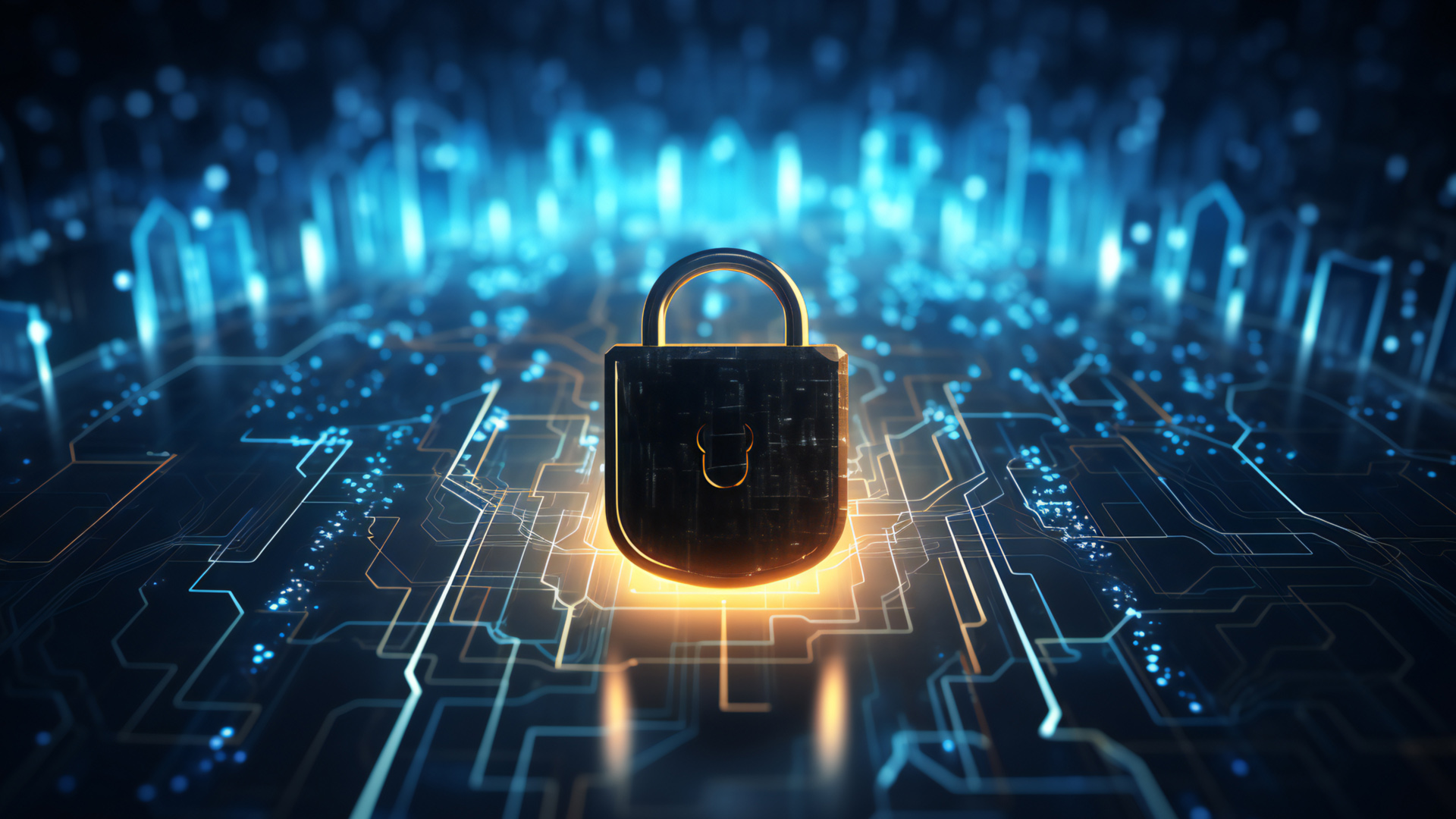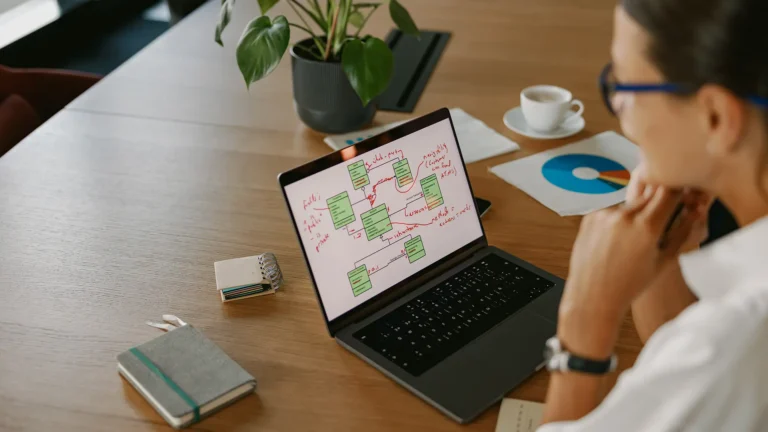Trending: Here are some Business Statistics and Trends to know

A VPN (Virtual Private Network) creates a secure, encrypted link between your device and the internet. It hides your real IP address and protects your data from spying eyes.
In this guide, you’ll learn what is a VPN, how it works, and why you might need one.
Key Takeaways
A VPN is a Virtual Private Network that provides a secure, encrypted connection to protect user privacy by masking their IP address and encrypting internet traffic.
VPNs enable users to bypass geographic restrictions, allowing access to blocked content and services while ensuring robust security, especially on public Wi-Fi networks.
Different types of VPNs, including Personal, Remote Access, and Site-to-Site VPNs, serve various needs, from individual privacy to secure corporate communications across locations.
VPN
A VPN, or Virtual Private Network, establishes a secure, encrypted connection over the internet.
What is a VPN? Understanding and Using Virtual Private Networks

A VPN, or Virtual Private Network, establishes a secure, encrypted connection over the internet. Its main function is to protect online activities from tracking and ensure privacy by hiding the user’s real IP address and encrypting their internet traffic. This guarantees sensitive data remains unreadable to unauthorized users.
VPNs connect a user’s device to a remote server, effectively masking their location and enabling them to bypass geographic restrictions on content. This means users can access blocked websites and services, regardless of their physical location.
VPNs offer versatile solutions for privacy, security, and accessing restricted content using a vpn client.
Introduction
The concept of a VPN might seem complex at first, but understanding its technical and practical aspects reveals its true value. Think of a VPN as a secure tunnel for your data, protecting it from the prying eyes of hackers and internet service provider. This tunnel not only shields your data but also allows you to gain access to content that might be restricted due to geographical locations.
This guide unpacks the intricacies of VPNs, covering their fundamental workings and myriad benefits. It explores who benefits most from using a VPN, the different types available, and how to choose the right service.
By the end, you’ll understand how to set up and use a VPN to enhance your online experience and safeguard your digital footprint.
Defining a VPN: What It Is and How It Works
A Virtual Private Network (VPN) creates a secure, encrypted tunnel between your device and a remote server, ensuring all internet traffic passing through it remains private and secure, protecting data from potential threats. A VPN hides your online activities by masking your real IP address, providing an additional layer of anonymity.
The encryption provided by a VPN means that even if data is intercepted, it remains unreadable without the decryption keys. Encryption is crucial for safeguarding sensitive information, especially on public Wi-Fi networks.
Routing your internet connection traffic through a remote server, VPNs allow access to content restricted in your location.
The Mechanics Behind VPNs
At the heart of a VPN’s functionality are the tunneling protocols that establish secure connections over the internet. These protocols, such as IPSec and L2TP, create point-to-point connections that encrypt data packets during transmission. OpenVPN, known for its strong security features, is a widely used protocol that offers flexibility and compatibility with various setups.
When data travels through a VPN, it is first encrypted and then sent to the VPN server. Upon arrival, the outer encryption layer is removed, and the data is decrypted before being forwarded to its final destination. This process ensures that even if the data is intercepted during transmission, it remains secure and private.
Protocols like SSL/TLS and SSH further enhance security by encrypting data at the application level, limiting access to specific applications rather than the entire network. Such layers of security make VPNs effective for maintaining privacy and protecting sensitive information online, including internet protocol security.
Key Benefits of Using a VPN

One of the most significant benefits of using a VPN is the enhanced privacy it offers. A VPN makes it difficult for websites, advertisers, and ISPs to track your online activities by masking your IP address. This level of anonymity protects you from identity theft and online scams.
VPNs bypass geographic restrictions, granting access to region-specific content and services. Whether traveling or living in a country with strict internet regulations, VPNs enable unrestricted internet access.
VPNs provide robust security by encrypting data, especially when connected to public Wi-Fi networks. This encryption protects your sensitive information from being intercepted by malicious actors, ensuring your data remains private and secure.
Who Should Use a VPN and Why
VPNs are valuable tools for a wide range of users, including remote workers, travelers, gamers, and anyone concerned with online privacy. Remote workers need VPNs to securely access company resources online, enhancing data confidentiality and protecting sensitive information.
Travelers use VPNs to access home content and avoid content restrictions abroad. Gamers use VPNs to prevent DDoS attacks and reduce bandwidth throttling, ensuring smoother gameplay. Anyone valuing online privacy and security benefits from using a VPN.
Types of VPNs and Their Uses

Various forms of VPNs exist, each with unique strengths and areas of application. The main categories are Personal VPN, Remote Access VPN, and Site-to-Site VPN. Knowing these types assists in choosing the right VPN for specific needs and use cases.
Personal VPN
Personal VPNs secure internet connections for individual use by masking IP addresses and encrypting data. Most consumer-grade VPNs fall into this category and are tailored for personal privacy and security. Reputable personal VPN services offer strong encryption to ensure user security.
They connect users to the VPN provider’s servers instead of a workplace network, ideal for general internet use, streaming, and bypassing geographic restrictions. Personal VPNs are thus perfect for anyone looking to enhance their online privacy and access restricted content.
Remote Access VPN
Remote access VPNs create secure tunnels, allowing users to connect to enterprise networks from anywhere. Their primary function is to connect user devices to a network from outside the organization, enabling secure remote access to data and resources.
These VPNs perform security checks before allowing connections to ensure device security. Laptops, smartphones, and tablets can use remote access VPNs, though increased lag time can be a limitation. This makes them crucial for businesses with remote employees.
Site-to-Site VPN
Site-to-site VPNs connect entire networks at different locations through a gateway device. This setup is typically used by large corporations to link multiple offices or branches to a central office, facilitating secure communication and resource sharing.
They enable organizations to share resources and access servers as if located in the same physical office. The encryption used in site-to-site VPNs ensures data remains secure during transmission. Common protocols for these VPNs include IPsec and MPLS.
Choosing the Right VPN Service

Choosing the right VPN involves considering several critical factors. The best VPNs offer features such as a no-log policy, bank-grade encryption, and a wide variety of servers worldwide. Paid VPN services are typically more reliable and secure than free options, which often lack speed and proper privacy measures.
A no-log policy is crucial for privacy, ensuring the VPN provider does not store user activity data. Some VPN services allow cash payments or cryptocurrency options to further enhance user privacy. Starting with a short-term subscription or free trial helps determine if a VPN service meets your needs.
Look for secure access communication protocols and transparency regarding user data when choosing a VPN. This ensures your data remains private and protected from potential threats.
Setting Up Your VPN Connection
Setting up a VPN connection is straightforward with the right steps. Most VPN providers offer user-friendly applications that can be downloaded, installed, and configured in a few clicks. After launching the VPN app, log in, select a server, and connect to start securing your internet traffic.
Alternatively, manually configuring your VPN connection can be more time-consuming and prone to errors. Some devices, like certain Android smartphones, have built-in VPN features accessible without additional costs.
Whether using a VPN app or manual configuration, ensuring a secure connection is crucial.
Enhancing Security with VPN Features

Advanced security features are a hallmark of effective VPNs. A VPN kill switch, for instance, immediately disconnects the internet if the VPN connection fails, protecting user data from exposure. Two-factor authentication adds an extra layer of security by validating user identities before granting access.
These features, along with robust encryption protocols like AES-256, ensure all transmitted data remains secure. Using these advanced security measures helps protect user data and online privacy.
Common VPN Protocols Explained
Knowing VPN protocols is key to selecting the right service for your needs. OpenVPN is highly configurable, balancing speed and security, making it a popular choice. IPsec provides strong security and works with various network protocols, suitable for remote access VPNs.
SSTP uses SSL/TLS encryption, ensuring data privacy during transmission. WireGuard is noted for modern cryptographic techniques and improved performance due to its simplified structure. PPTP is known for simplicity and speed but is not recommended for secure communications due to vulnerabilities.
Protocols like L2TP/IPsec and SoftEther offer enhanced encryption and flexibility, suitable for various network setups. Each protocol has strengths, and understanding these helps choose the right VPN for specific needs.
Addressing VPN Concerns and Limitations
While VPNs offer many benefits, there are also concerns and limitations to consider. Using a VPN to bypass restrictions can violate local laws in some regions, although VPNs are legal in most places. Geographical distance between the user and the VPN server can impact connection speeds due to latency.
Free VPNs often have limitations affecting performance and privacy protection, making them a risky option. Users should be cautious about VPN providers’ no-log policy claims, as these are often unverified and pose privacy risks.
Ensuring compatibility across different devices and operating systems is crucial to avoid potential issues.
Summary
In summary, VPNs are powerful tools for enhancing online privacy, security, and access to restricted content.
By creating a secure, encrypted tunnel for internet traffic, VPNs protect sensitive data from potential threats and provide a level of anonymity. Whether you’re a remote worker, traveler, or someone concerned about online privacy, a VPN can significantly enhance your digital experience.
As you navigate the digital world, consider incorporating a VPN into your online activities to ensure your data remains private and secure. With the right VPN service, you can enjoy the internet freely and safely, knowing that your online presence is protected.
Frequently Asked Questions
What is a VPN and how does it work?
A VPN, or Virtual Private Network, provides a secure and encrypted connection between your device and a remote server, safeguarding your data and concealing your IP address. This technology ensures that your online activities are kept private and secure from unauthorized access.
Why should I use a VPN?
Using a VPN significantly enhances your online privacy and security by encrypting your data and masking your IP address. It also enables you to bypass geographic restrictions and access blocked websites, ensuring a safer browsing experience.
What are the different types of VPNs?
The primary types of VPNs include Personal VPNs for individual use, Remote Access VPNs for connecting to enterprise networks from various locations, and Site-to-Site VPNs that link entire networks across different sites. Each type serves distinct purposes based on user needs and network connectivity.
How do I choose the right VPN service?
To choose the right VPN service, prioritize options with a no-log policy, strong encryption, and a diverse server selection. Paid VPNs are typically more reliable and secure, making it prudent to begin with a free trial or short-term subscription to assess compatibility with your requirements.
Are there any limitations or concerns with using a VPN?
Using a VPN does present limitations, including potential legal issues, reduced connection speeds, and privacy risks with untrusted no-log policies. Additionally, free VPN services may impose performance and privacy constraints.


